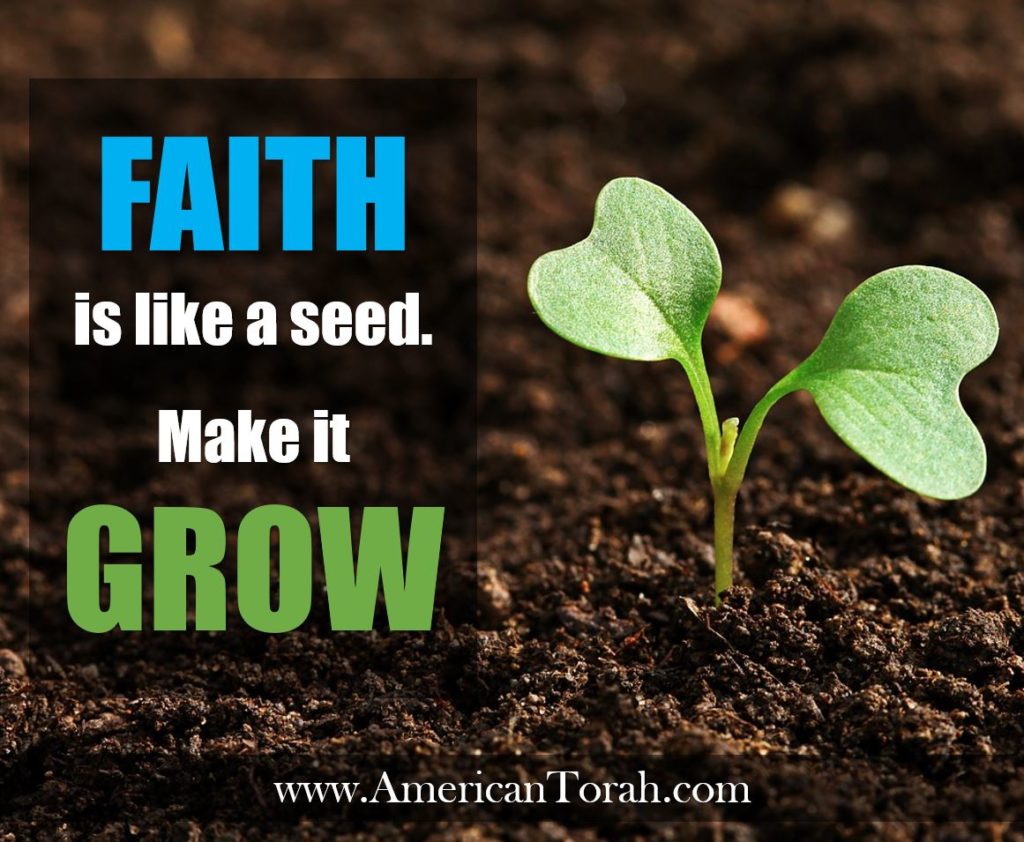
Faith is ubiquitous in Scripture.
- Faith makes us well. (Matthew 9:22 & 29, Luke 17:19, Acts 3:16, James 5:15, etc.)
- Faith makes great works possible. (Matthew 17:20, Luke 17:6, Hebrews 11, etc.)
- Faith inevitably leads to good works. (Acts 20:21, Romans 3:31, Hebrews 11, James 2, etc.)
- Faith makes our good works effective on the spiritual plane. (Hebrews 11, James 2, etc.)
- Faith is essential to our eternal salvation. (Romans 3:28, Ephesians 2:8, Hebrews 11, etc.)
Over and over, the scriptures say, “If you had faith, you would be healed.” If you had faith, big things would happen.
Clearly faith is vital. Without faith, we are powerless. Without faith, we are lost.
Yet we all struggle with insufficient faith. We believe, but, for most of us, big things aren’t happening. As the desperate father in Mark 9 said, “Lord, I believe. Help my unbelief.”
Is it possible to develop faith, to start with a little and end with a lot? We know that God can simply give us greater faith–he is God, after all–but from long experience we also know that’s not how he usually operates. Yes, our faith can grow over time. Paul told the congregation at Thessalonika that he thanked God for their continually growing faith (2 Thessalonians 1:3), and Yeshua hinted at this fact when he compared faith to a seed. (Matthew 17:20) Seeds aren’t meant to be static. They were designed to sprout and grow into something much larger, which in turn produces many more seeds of its own.
The big question is how. How can we develop our faith from a mere seed to a plant? I know that this is a question that I have struggled with all of my life. Why aren’t people healed when we pray? The answer to that question can be complicated, but Scripture is very clear that, at least in part, people aren’t healed because they or the one praying for their healing have too little faith.
So how can we grow more faith?
Yeshua’s metaphor of the mustard seed implies that faith doesn’t grow only by virtue of its existence. No seed sprouts and grows without fertile soil, water, stress, and light. There are things besides faith itself, which we need to add to our little seed before it will grow to the piont of moving mountains and healing the sick.
Deep, Rich Spiritual Soil
Just as in the parable of the sower and the seed of the Gospel, the seed of faith also needs deep, healthy soil to prosper. It needs to be embedded in an environment which encourages long-term, meaningful maturity. The environment in which our faith sprout–or doesn’t sprout–includes the people, places, things, and habits with which we surround ourselvs.
We have all heard that you become like those with whom you spend the most time, and I believe it’s true.
Pessimists are like the weeds of the parable. Their constant negativity chokes the hope and life out of you until you can’t believe in that anything good could happen for you. They need love as much as anyone–more, evidently–but you can’t keep them as close friends. They will drag you down to keep company with their misery.
The proud and self-sufficient are like the rocks. On the surface, they might be very positive, but their hearts are hard. Why should they trust in God when they believe they already have all that they need. If you spend too much time with them, the seed of faith will have no opportunity to put down roots, and it will whither and die.
Maintaining and building faith requires keeping company with people of faith. Surround yourself with people who trust God. Be active in a community of faith. Be a friend to people who are where you want to be, and be careful not to speak negativity into their lives.
And not only company, but our home, work, and religious environments need to be conducive to developing faith. What kind of art hangs on your walls? What is the usual conversation like in the break room? Do your personal and spiritual habits focus on God’s faithfulness or on God’s wrath?
People like to denegrate religion, but ritual and tradition have always been very powerful instruments for building faith. Liturgy, rituals, annual observances, and the like will never save anyone. If your church teaches that they are necessary for salvation, that will tend to degrade faith. However, if they use these things to emphasize God’s dependability and mercy, they can be wonderful. The forms of traditional religion that unite people and build faith while honoring God’s commands are nearly endless. It’s important that your religion honors God by adhering to his standards, but don’t throw out all religion because some people and organizations have abused it.
If there are elements of your environment that discourage faith, consider how you can replace them with something more positive.
Good Spiritual Nourishment
Faith comes by hearing, and hearing by the word of God. (Romans 10:17)
The Bible is full of God promises and stories of those who trusted him and also those who didn’t trust him. Memorize God’s promises and read those stories often. They are all through the Scriptures, but especially focus on Genesis, the historical books1 the Psalms, and the Gospels2. There are also many stories of faith and miracles outside the Bible. The biographies of missionaries are especially rich nourishment in this respect.
Entertainment and education should also be designed to promote a strong faith and relationship with God. If your favorite author writes disdainfully of the miraculous and if your favorite bands mock the promises of God, how can they do anything but discourage you? It’s counter-productive to read about divine Providence in the morning and listen to someone talk about how it’s all “me, me, me” in the afternoon.
Pay attention to what’s being fed into your life, and try to filter out those inputs that aren’t helpful. Replace them with books, videos, podcasts, conversations, etc., that will encourage you and reinforce your faith.
Spiritual Stress
Yes, stress. Just like children, all plants need some kind of stress to mature and produce good fruit. Some plants need a touch of frost. Some need a hard freeze. Some plants need a strong wind to scatter seeds and some need to be eaten. Almost all plants need pruning in order to reach their greatest heights and productivity.
Your faith will never grow if it is never put to the test. How do you learn to trust someone if you never need to trust them. You start by acting as if you have faith, whether or not you do. You make yourself vulnerable and take a chance.
Take risks. Get banged up a little. If nothing else, you’ll toughen up a bit and gain some life experience.
Shining Spiritual Light
In Yeshua was life, and the life was the light of men. The light shines in the darkness, and the darkness has not overcome it. (John 1:4-5)
Faith isn’t the belief that God exists. Faith is the belief that God is who he says he is, that he keeps his promises, that he loves you and will never abandon you. Faith is another word for trust.
How do you learn to trust a friend, your husband, your wife? Through experience. You trust a good friend because he has been there for you in the past. He stood by your side when everyone else disappeared. If you want to trust God more, then you need to spend more time with him. Set some time aside every day to read your Bible, to pray, and to listen.
Your prayers don’t have to be limited to any particular format. Kneel and pray aloud if that works for you. Or sit in a comfortable chair and sip your morning coffee. Go for a walk. Dance. Whatever language allows you to speak most freely is fine because God speaks that language too.
Corporate worship is also important. Liturgical and informal prayer, singing of hymns, blowing shofars, dancing, waiving banners, pilgrimages… Like intimacy in a marriage and shared experiences with friends, all of these things create mental and spiritual reactions in us that draw us closer to God, that strengthen our emotional ties to the one being worshipped. (And be careful that your worship is directed upward and not to a performer on stage or to an experience.)
Getting to know God isn’t limited to the proverbial prayer closet and time spent focusing vertically. We can also gain a deeper knowledge of God by focusing laterally, toward the people around us.
The King will answer them, “Truly, I say to you, as you did it to one of the least of these my brothers, you did it to me.’” (Matthew 25:40)
Everyone around you–young and old, sick and healthy, good and bad–bears the image of God, and they are all the focus of God’s loving attention. If you want to know God better, go find someone with a need that you can meet and then meet it. Pay attention to the things that God pays attention to. Be kind. Be generous. Love your neighbor, and not just your wealthy and nice smelling neighbors. In showing love to people who desparately need it, you will learn something of God’s heart, of the love and the pain that God feels for each one of us, and God himself will draw nearer to you.
It’s not enough to let God’s love illuminate you, because you weren’t designed just to be a solar collector. You were designed to take the spiritual light of Yeshua and turn it into fruit full of good works meant to feed God’s people. If you want more faith, then you need to be the instrument through which God answers the faith of others.
Faith is a living, growing thing. It requires attention, care, and feeding. It needs a healthy environment in which to take root. It needs a constant stream of reinforcement and encouragement. It needs exercise. Most of all, faith depends on an ever-growing relationship with the King in whom we have faith and with his people for whom we ARE faith.
Gardens don’t spontaneously spring up from the ground. They take planning, deliberate action, and hard work. Even Eden needed a gardener.
When I sit down to write, I usually have an idea of what I intend to communicate, but sometimes God leads me in a direction I wasn’t expecting. This is one of those times, and this is a message I needed to hear. Using this structure of a seed needing good soil, nourishment, stress, and light, I’m going to develop a faith-growing plan for myself and my family.
I encourage you to do the same.
Evaluate your current environment and your life’s inputs and identify those things that would tend to discourage faith. Don’t try to fix everything right away. Remember that God told Israel only to drive the Canaanites out of the land as they were ready to advance and occupy it. Instead, remove a negative influence and replace it with a positive one. Then another. Have a plan with a definite goal in mind, and don’t be afraid to alter the plan as you go and circumstances require. As long as you continue to move forward, your faith will too.
1 Joshua, Judges, Ruth, 1-2 Samuel, 1-2 Kings, 1-2 Chronicles, Ezra, Nehemiah, and Esther.
2 Matthew, Mark, Luke, John, and Acts.
 Starting from the very first night of the Exodus when the Hebrews built sukkot at a placed named Sukkot (Exodus 12:37), they slept undisturbed in a wilderness that was barren, but not uninhabited. They didn’t have guards except to keep unauthorized people from hurting themselves in the Tabernacle. They didn’t assign watches at night. They walked through the lands of Midianites, Amalekites, and other semi-nomadic peoples who proved that they were more than willing to do the Hebrews harm despite the dramatic defeat of Egypt, yet they slept safely in the flimsiest of structures with nobody to watch over them except for that towering pillar of fire and smoke.
Starting from the very first night of the Exodus when the Hebrews built sukkot at a placed named Sukkot (Exodus 12:37), they slept undisturbed in a wilderness that was barren, but not uninhabited. They didn’t have guards except to keep unauthorized people from hurting themselves in the Tabernacle. They didn’t assign watches at night. They walked through the lands of Midianites, Amalekites, and other semi-nomadic peoples who proved that they were more than willing to do the Hebrews harm despite the dramatic defeat of Egypt, yet they slept safely in the flimsiest of structures with nobody to watch over them except for that towering pillar of fire and smoke.



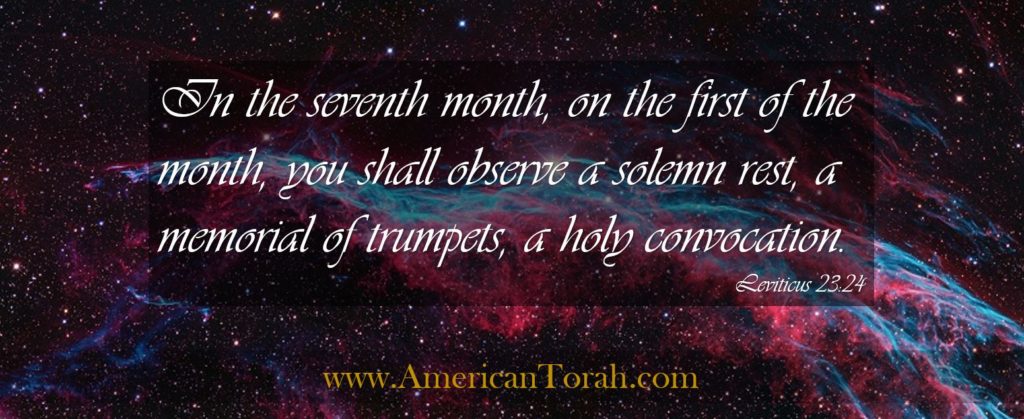

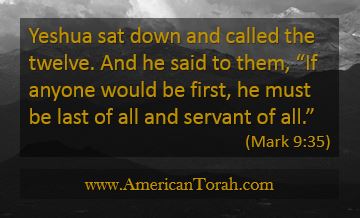
 Many of the glaring sins of our forebears weren’t so glaring to them. Every house in David’s day had its household gods, and his was no different. His wife, Michal, used one to trick Saul’s men into thinking David was ill and asleep in bed. Washington and Jefferson thought they were doing everything reasonably within their power to end slavery, although from the twenty-first century it appears that they could have done so much more if they had truly believed their own rhetoric. Martin Luther was only echoing the predominant view of Jews among his countrymen. He had been steeped in lies about the Jews his entire life. These men were all products of their time and cultures, just as we are.
Many of the glaring sins of our forebears weren’t so glaring to them. Every house in David’s day had its household gods, and his was no different. His wife, Michal, used one to trick Saul’s men into thinking David was ill and asleep in bed. Washington and Jefferson thought they were doing everything reasonably within their power to end slavery, although from the twenty-first century it appears that they could have done so much more if they had truly believed their own rhetoric. Martin Luther was only echoing the predominant view of Jews among his countrymen. He had been steeped in lies about the Jews his entire life. These men were all products of their time and cultures, just as we are.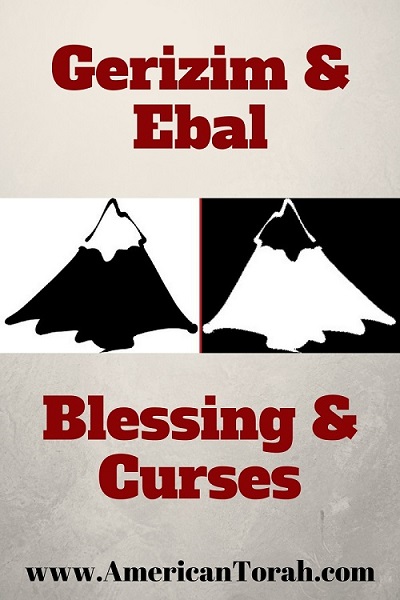 The Hebrews spent forty years in the wilderness getting to know God and their place in relationship to him. Sometimes they did things his way and things went well. Sometimes they tried it their own way and it went poorly, but eventually they made it through, which means that, on the whole, they must have done more right than wrong along the way.
The Hebrews spent forty years in the wilderness getting to know God and their place in relationship to him. Sometimes they did things his way and things went well. Sometimes they tried it their own way and it went poorly, but eventually they made it through, which means that, on the whole, they must have done more right than wrong along the way.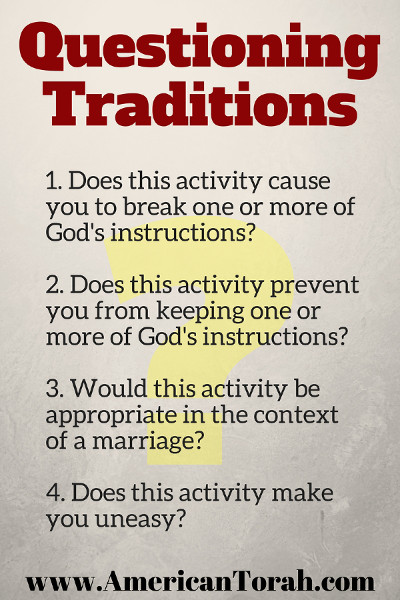 I recommend asking yourself a few simple questions to determine if any tradition or habit or activity is something you need to stop:
I recommend asking yourself a few simple questions to determine if any tradition or habit or activity is something you need to stop: